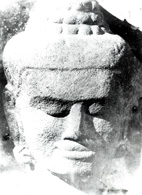The seeker will be greatly assisted in this subtle combat with himself by understanding the importance of uniting his body, mind and feeling. Normally, one is always divided within oneself. One must learn to be whole – at least at certain times – if there is to be any hope for crossing a certain threshold by detaching oneself from what one usually is.
From the Depths of the Mists –
lecture: The Unification of the Three Sides of the Human Being’s Nature Necessary for Meditation
His mind must constantly be occupied with the object of his concentration; his body must participate through overall physical sensation, which he must try and retain permanently; finally, his feeling must sustain him with a profoundly devotional attitude which he must continually create in his being.
Obstacles to Enlightenment and Liberation – Chapter 6
When, through serious self-study, the seeker comes to know herself better, she will understand how this trinity within her practically never works in unison. She will discover that, at certain moments, her mind consents to participate in her efforts to remain concentrated during her meditation or her spiritual exercises carried out in active life, but that her sentiment is occupied elsewhere, by a melancholy of some kind, an indefinable yearning, or an imprecise displeasure with someone or something, and, on other occasions, it is her body that refuses to participate in her spiritual practices, because of weariness or fatigue, a sensual desire, or even, curiously, a great sense of physical well-being. However, it is principally her feverish mind that constitutes the major obstacle that she must dominate to be able to remain concentrated. The mind is always in movement, occupied by the memory of the past, anticipation of the future, or by something that attracts it and that it does not want to let go of. Consequently, the aspirant never knows inner tranquility enough to have the liberty to consecrate herself to her difficult task of staying present and true within herself when she carries out her various concentration exercises.
Moreover, she must understand that if one single aspect of this trinity within her consents to participate in her spiritual practices while the other two balk at or clearly obstruct them, she will have only a slight chance, or no chance, of succeeding in remaining concentrated, whether that be while she is performing a concentration exercise in her active life or during her meditation—or even, consenting to engage in the struggle with her rebellious attention. If, on the contrary, two of the three aspects consent to collaborate in her attempts to remain concentrated, she will then have a greater probability of drawing in the remaining one in order to carry out more effective work on herself.
Fruits of Awakening – Chapter 7
Considering the fact that the seeker is composed of a trinity, namely, her body, her mind, and her sentiment, it is indispensable to her to understand that, of these three elements, it is feeling that constitutes the driving force through which she will be able to keep the wheel of her spiritual work turning. (…/)



